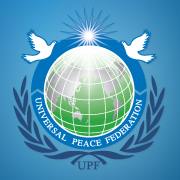Universal Peace Federation (UPF)
Origin
The Universal Peace Federation (UPF) is a non-governmental organization that promotes peace, interfaith cooperation, and sustainable development worldwide. It was founded in 2005 by Reverend Dr. Sun Myung Moon, a South Korean religious leader and peace activist.
The UPF emphasizes the importance of “living for the sake of others” and advocates for the principle of universal values and shared responsibilities among individuals, communities, and nations. It promotes dialogue and cooperation among different religious and cultural traditions, seeking to build bridges of understanding and respect.
The organization has chapters and affiliated organizations in numerous countries around the world and works in partnership with other peacebuilding initiatives, NGOs, and international organizations to advance its mission of creating a world of peace and cooperation.
Aims
The UPF aims to bring together leaders from various sectors of society, including government, religion, academia, and civil society, to collaborate on finding solutions to global challenges and fostering peace and harmony. The organization organizes conferences, seminars, and peace initiatives on regional and international levels, focusing on topics such as interfaith dialogue, conflict resolution, and sustainable development.
Actions
- Conferences and Forums: The UPF organizes conferences, forums, and seminars at regional and international levels. These events bring together leaders from diverse fields, including government, religion, academia, and civil society, to discuss and address pressing global issues. Topics often include interfaith dialogue, conflict resolution, sustainable development, and peacebuilding.
- Interfaith Dialogue: The UPF promotes interfaith dialogue and cooperation as a means to foster understanding, respect, and peaceful coexistence among different religious and cultural traditions. They organize interfaith gatherings, dialogues, and initiatives to encourage mutual understanding and collaboration.
- Peace Initiatives: The UPF initiates and supports various peace projects and initiatives around the world. These initiatives may include peacebuilding efforts in conflict-affected regions, intercultural exchanges, educational programs promoting conflict resolution and reconciliation, and humanitarian projects aimed at addressing social and economic challenges.
- Youth and Leadership Development: The UPF places significant emphasis on empowering youth and developing leadership skills. They organize youth programs, seminars, and workshops that focus on character education, ethical leadership, and peacebuilding. These initiatives aim to inspire and equip young people to become agents of positive change in their communities and the world.
- Advocacy and Partnerships: The UPF engages in advocacy efforts to promote peace and sustainable development. They work in partnership with other organizations, NGOs, and international bodies to advocate for policies and initiatives that contribute to peace, human rights, and social justice.
While the Universal Peace Federation (UPF) promotes interfaith dialogue and cooperation, I don’t have specific information regarding their Judaism-oriented actions or initiatives to combat antisemitism. However, it’s worth noting that the UPF’s emphasis on interfaith dialogue and their commitment to fostering understanding and respect among different religious and cultural traditions indirectly contribute to combating prejudice and discrimination, including antisemitism.
Engaging in interfaith dialogue allows for conversations and exchanges that can help dispel misconceptions, stereotypes, and prejudices, promoting a more inclusive and tolerant society. By bringing together leaders from diverse backgrounds, the UPF creates opportunities for collaboration and understanding between different religious communities, including Jewish communities, which can help address issues related to antisemitism.
Additionally, the UPF’s focus on ethical leadership, character education, and peacebuilding among youth can contribute to fostering an environment that rejects prejudice, discrimination, and hate, including antisemitism. Empowering young leaders with knowledge, empathy, and a commitment to peace can play a significant role in combating intolerance and promoting a culture of acceptance and respect for all.



 NOA is co-funded by the Rights, Equality and Citizenship Programme (2014-2020) of the European Union
NOA is co-funded by the Rights, Equality and Citizenship Programme (2014-2020) of the European Union